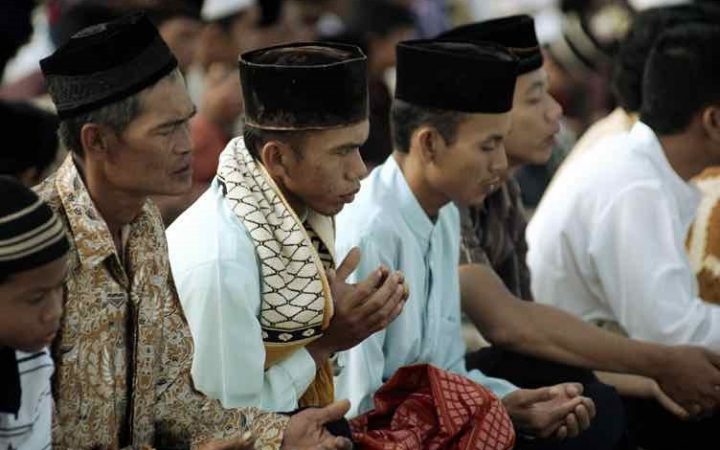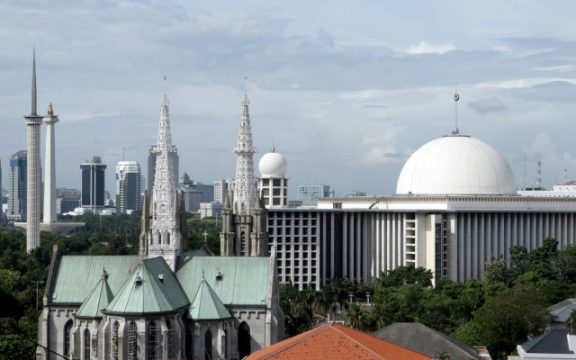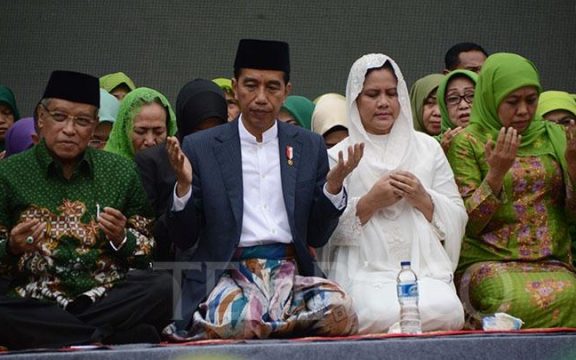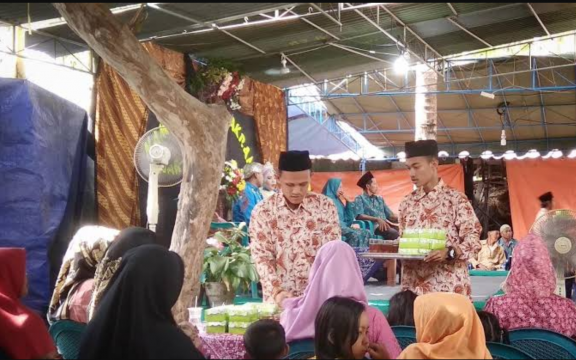Discourse of Islamic law has been existing in Indonesia since colonial Dutch-Indies period. Dutch politics has given a perspective about this islamic law position in the late 19th century in Indonesia. It is L.W.S. Van Den Berg, a Dutch orientalist, who said that the law of Indonesia is an islamic law, not a customary law or the so-called receptio in comisplexu.
But, this theory does not last long. Since the coming of Snouck Hurgronje to Indonesia, for observing and researching the Indonesian law, Snouck found out an incompatibility between Van Den Berg theory towards social reality of regional community. Snouck argued that the law which was applied in that time actually was a customary law, as for the islamic law had been integrated within that customary law. This theory later called receptie. In short, eversince Snouck officiated, the law which was applied in Indonesia covered three elements. Islamic law, civil law, and customary law.
After independence of Indonesia, the influence of Snouck’s thought still existed. It was proven by the existing of three differentiation by state towards law in Indonesia. Indonesia did not take its shape as integralistic nation as well as Iran, yet took a Pancasila paradigm.
Pancasila paradigm is different from other paradigms. There are three paradigms that explain a relation between religion and state, first integralistic paradigm which admits the existence of God’s sovereignty, for instance the concept of imamah or Shia state. Second, simbiotic paradigm that needs each other between religion and the state. Third, secularistic paradigm, that separates religion and the state.
From those three paradigms, Indonesia is actually included in the simbiotic paradigm category, this simbiotic paradigm, based on Pancasila philosophy. Pancasila has given a limitation to the state in order not to get caught in the framework of integralistic or secularistic state, and the position of Indonesian law will not be dominated by majority of religion.
Therefore, when Islamic law is applied as nation law, it is then called positive law. Yet, the positivating effort for law is not easy. Because, the state takes a role to give an intervention to Islamic law whether appropriate or not with Indonesian society. In Orde Baru era, the publishing of Marriage Law (UU Perkawinan 1974), showed how Islamic law was produced for the sake of state interests. In that era, the state was actually still confused about uniting and codificating Marriage Law in Indonesia.
Islamic law positivation effort within a state like Indonesia needs a critical reading towards situation during history of Indonesian society. Hasbi ash-Shidiqiey once argued that Indonesian Islamic community is supposed to have its own islamic law. This point of view comes up from the reality of Indonesia Moslem society who is still dominated by fiqh madzhab of Egypt, fiqh madzhab of Arab, and fiqh madzhab of Irak.
By looking at the characteristics of fiqh from those countries, Hasbi said that Indonesia is supposed to have its own style of law. It is easily understood since the Islamic law within text contains values that can be contextually applied. It means, Islamic law written in the Quran does not only refer to one group or specific period of time, but for humans throughout the ages. It also means, Islam does not expect a stagnation of thinking. Islamic universality values need to be translated in to current context, so that legal product that is produced will adjust to the circumstances of the times.
Abdurrahman Wahid, known as Gus Dur, once argued that religion has been an inspiration or spirit of state law. The state law must represent the treasure of wealth existed in religions in Indonesia. It also has to be adjusted with the history of Indonesian society. Gus Dur understood that if the esoteric meaning was taken from islamic law, then Islamic law can be contextually applied, even it is out of religious language.
Therefore, the position of Islamic law in Indonesia is a result of the dialogue between community reality, religion, politics, and state. To produce an Indonesian style-Islamic law, those elements should be placed in the dialogical framework. In that way, Islamic law can be applied in accordance with the context of any periods and for the public.
Translated from the article in Indonesian version: https://islami.co/bagaimana-posisi-hukum-islam-di-indonesia/ by : M. Mujibuddin on Islami.co, published 16 December 2019
![Islami[dot]co](https://en.islami.co/wp-content/themes/jambualas/images/logo.png)










